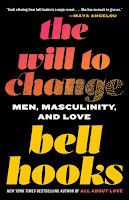"Patriarchy is a political-social system that insists that males are inherently dominating, superior to everything and everyone deemed weak, especially females, and endowed with the right to dominate and rule over the weak and to maintain that dominance through various forms of psychological terrorism and violence" (p. 17). One of the most powerful foundations of patriarchy is emotional stoicism, which results in men believing that they cannot feel if they want to be manly. Should they feel even a shadow of emotion, they extinguish it and certainly don't let other men know. Both men's and women's silence about what they experience in families, often void of emotion and connection, maintains the patriarchal culture without question. By contrast to the silence, hooks advocated as early as 1984 that both men and women should join as comrades in the struggle.
The perpetuation of patriarchy is fostered in many ways and the dynamics are notably more powerful during the adolescent years for boys. During this liminal period of not being a child but not being an adult, feeling out of control is common. It is during this period that boys are told to "be a man" when they feel pain or when they face disappointment, thus starting down the path toward denial and stuffing down their feelings. This disembodiment of emotion and feeling is tantamount to lying as young men take on the role of male chauvinists and sexists. Chauvinism claims male superiority which is known in the deeper selves of most men and women to be destructive and untrue.
Having learned their lessons well, boys move into adulthood struggling to establish authentic emotional connections with men or women. The beginning of the tragedy of men's and women's life partnerships is that, if not changed, relationships with women are frozen in time. Appearing to be almost a compensation for lack of capacity in relationships, patriarchal culture then places the most value on what men do, the work they perform. To reverse the pattern, hooks proposed love and defined it as "the will to nurture one's own and another's spiritual and emotional growth" in ways that "combine care, commitment, knowledge, responsibility, respect, and trust" (p. 65). hooks' response to changing masculinity that diminishes and threatens is to love men out of their lethargy - support them in taking off the imposed mask to release them to a fuller way of being.

No comments:
Post a Comment